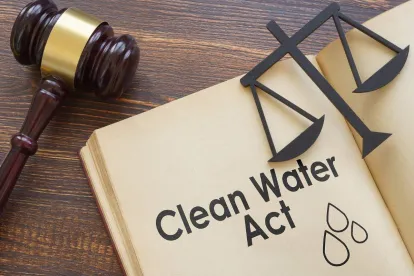This week Massachusetts Federal District Court Judge Richard Stearns dismissed two counts of the Conservation Law Foundation's and Charles River Watershed Association's lawsuit against EPA and stayed until September of next year further proceedings regarding the three remaining counts of the NGOs' complaint. A stay is what the NGOs had asked for only a few months after filing their lawsuit in the fall of 2022. In the meantime EPA filed a motion to dismiss the whole kit and caboodle.
EPA said this was the first time ever that it was exercising this authority and I wondered why EPA would do such a thing in the Commonwealth of Massachusetts which has its own much broader Clean Waters Act and a dedicated Department of Environmental Protection enforcing that State Act and its implementing regulations. Since then, according to the Conservation Law Foundation and the Charles River Watershed Association, EPA has also exercised this authority twice in California and once in Maine but I still doubt that things are really worse here than they are in other states, especially now that I've seen what "red" state Attorneys General have had to say about the Clean Water Act in lawsuits challenging the Biden Administration EPA's failed first attempt at a Waters of the United States regulation.
Cynically I wonder whether EPA exercised its authority to stave off litigation by the Conservation Law Foundation and the Charles River Watershed Association. After all the NGOs had sued EPA over this very issue in the past and were threatening to do so again and, in exercising its authority, EPA specified that the question of whether its first-time exercise of this authority was proper would remain open for public comment when EPA acted pursuant to the authority.
Judge Stearns ruled that the NGOs did not have standing to complain about EPA's failure to give notice to newly covered property owners of EPA's exercise of its residual designation authority and that disposed of two counts of the NGOs' complaint. As an aside, I've been surprised to see no real difference in the Justice Department's aggressive challenges to standing to sue in environmental cases between the Trump and Biden Administrations.
The three remaining counts of the NGOs' complaint that were stayed have to do with EPA's failure to issue any draft NPDES permit pursuant to the authority it has exercised as quickly as the NGOs would like. Judge Stearns held, over EPA's objection, that the District Court, and not the Court of Appeals, has jurisdiction over these counts while also wondering aloud whether EPA has a mandatory duty to issue a NPDES permit in any amount of time. The Judge says that may depend on "idiosyncratic circumstances that remain to be developed." Anyone who is aware of the backlog for the issuance of such permits in Region 1 is well aware of some of those idiosyncrasies.
But someday soon EPA is going to have to decide what to do about this mess entirely of its making.




 />i
/>i

